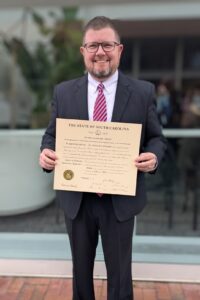First responders dedicate their lives to protecting others, often putting themselves in harm’s way to serve their communities. While they focus on keeping others safe, it’s equally important for these brave individuals to ensure their own families’ financial security and well-being through proper estate planning. The unique challenges and considerations that first responders face when planning for their families’ futures require specialized attention and understanding. Every goal, whether big or small, starts with a plan, and this principle applies especially to those who face occupational risks every day. First responders need estate plans that address their specific circumstances, from understanding…
Read MoreMany people believe estate planning is only necessary for the wealthy or elderly. This common misconception leads many people to postpone creating these important legal documents, leaving themselves and their loved ones vulnerable to unnecessary complications, stress, and financial hardship. The truth is that estate planning serves everyone, regardless of age, wealth, or life stage. As David often tells clients, “every goal, whether big or small, starts with a plan.” This philosophy applies not only to your immediate objectives but also to protecting your family’s future and ensuring your wishes are honored when you can no longer speak for yourself.…
Read MoreWe are pleased to announce that Attorney David Anderson has been admitted to the South Carolina Bar. This significant milestone further strengthens his ability to serve clients in both North Carolina and South Carolina, expanding his legal practice in estate planning and estate administration. With a career dedicated to helping clients navigate life’s various stages, from young families starting their journey to end-of-life planning, David’s commitment to excellence is unwavering. His additional qualifications as a Chartered Financial Consultant (ChFC) set him apart, providing him with a unique perspective that enhances his approach to estate planning and tax matters. David’s deep…
Read MoreWhen it comes to estate planning in North Carolina, one of the most beneficial steps you can take is to develop a plan that avoids probate. Understanding probate’s challenges in North Carolina and how to sidestep them can save your loved ones significant time, expense, and stress. At David E. Anderson, PLLC, we’re here to help you craft an estate plan tailored to your needs. What Is Probate? Probate is the legal process where a deceased person’s estate is administered, debts are paid, and assets are distributed according to their will or state intestacy laws if no will exists. While…
Read MoreWhen someone dies with a will, the document typically names an executor. If no valid will exists, the court will appoint an administrator. In either case, these “personal representatives” are responsible for managing the deceased person’s estate and handling probate in North Carolina. You may have questions if you’ve been named a personal representative, either in a will or by a court. In this post, an experienced North Carolina probate attorney discusses what you need to know about being a personal representative, including legal duties, frequently asked questions, and common pitfalls to avoid. Duties of Personal Representatives As a personal representative,…
Read MoreAfter having your first child, you begin to think of your future in new ways. You’re now suddenly worrying about creating a college fund for your child and protecting their financial stability for decades. With estate planning, you can ensure that your wealth goes where you desire, and you can create plans for many of life’s unpredictable developments. At David E. Anderson, PLLC, we offer comprehensive estate planning for new parents, including basic document drafting, care directives, and more. Below, our team offers tips on beginning your estate planning journey. 1. Take a Full Inventory of Your Assets First Before…
Read MoreAccording to the CDC, over one-fourth of American adults have disabilities. Many can continue to lead normal lives without having to rely on others for assistance. However, some face physical and/or mental limitations that require them to trust others to make financial and healthcare decisions on their behalf. If you fall into this category, consider appointing someone to serve as either your power of attorney agent or guardian. But before you do it, learn about the key differences between power of attorney vs. guardianship to see what sets them apart. What Is a Power of Attorney? A power of attorney, or a POA, is…
Read MoreIf you’re planning a meeting with an estate planning attorney, you’re making a very smart choice. Your lawyer can help you create your will and trust, set up guardianship for your children, and answer any questions you have about probate. By talking with an estate planning lawyer now, you’ll spare your family stress and uncertainty in the future. What documents should you bring to your meeting with an estate planning attorney? David E. Anderson, PLLC explains more below. A List of Questions Like many who are meeting with an estate planning lawyer for the first time, you probably have quite…
Read MoreAt first glance, prenups and estate plans don’t have much in common. One protects property in the event of a divorce and the other details arrangements after someone’s death. But what happens when someone dies with both? What if the documents conflict with each other? This post answers common questions about prenups and estate plans, including how they are similar, how they differ, and how they can work together to protect property and minimize conflict. What Is a Prenup? Often called a prenup, a prenuptial agreement is signed by two people before marriage. It details each partner’s property and specifies…
Read MoreDo you have a loved one who recently passed away without a valid will? While this isn’t as uncommon as you might imagine, you will still want to look into hiring a probate attorney immediately. Your family might have to visit probate court to sort out the details, from your loved one’s outstanding debts to the distribution of their assets, and a probate law firm can take these difficult steps with them. Still, this isn’t the only time you should consider hiring a probate attorney. Bringing a will and trust lawyer on board can benefit your family in a big…
Read More










